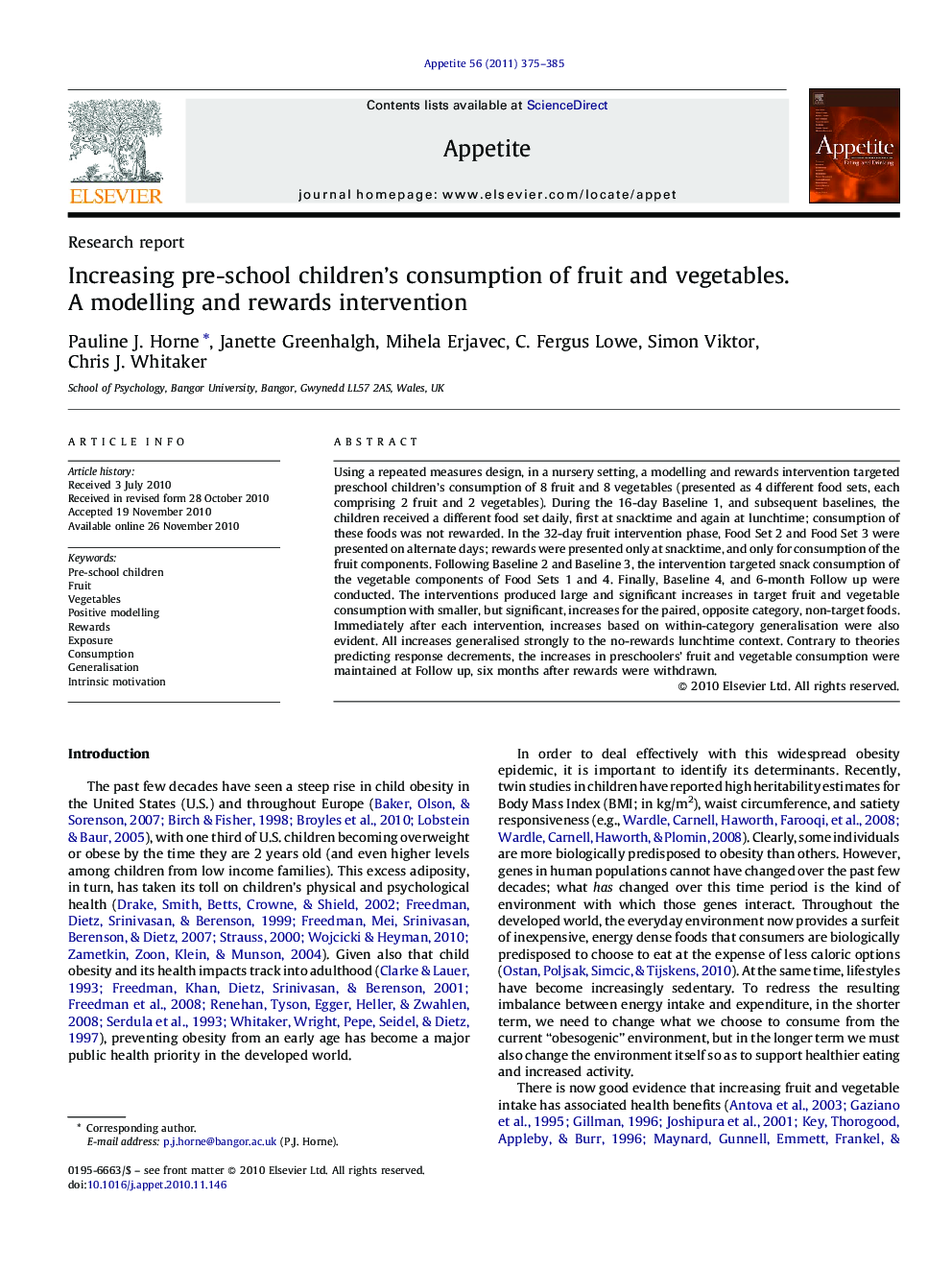| Article ID | Journal | Published Year | Pages | File Type |
|---|---|---|---|---|
| 939853 | Appetite | 2011 | 11 Pages |
Using a repeated measures design, in a nursery setting, a modelling and rewards intervention targeted preschool children's consumption of 8 fruit and 8 vegetables (presented as 4 different food sets, each comprising 2 fruit and 2 vegetables). During the 16-day Baseline 1, and subsequent baselines, the children received a different food set daily, first at snacktime and again at lunchtime; consumption of these foods was not rewarded. In the 32-day fruit intervention phase, Food Set 2 and Food Set 3 were presented on alternate days; rewards were presented only at snacktime, and only for consumption of the fruit components. Following Baseline 2 and Baseline 3, the intervention targeted snack consumption of the vegetable components of Food Sets 1 and 4. Finally, Baseline 4, and 6-month Follow up were conducted. The interventions produced large and significant increases in target fruit and vegetable consumption with smaller, but significant, increases for the paired, opposite category, non-target foods. Immediately after each intervention, increases based on within-category generalisation were also evident. All increases generalised strongly to the no-rewards lunchtime context. Contrary to theories predicting response decrements, the increases in preschoolers’ fruit and vegetable consumption were maintained at Follow up, six months after rewards were withdrawn.
